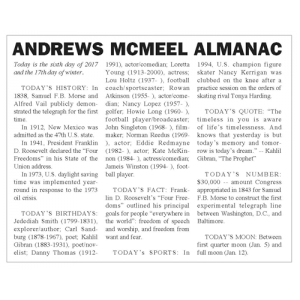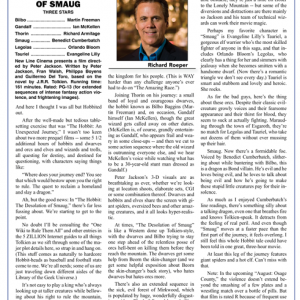Lifelong Health
Browse MoreDescription
Medical Advances in the Past 50 Years Are Incredible, but the Future Promises More
By Dr. David Lipschitz
In 2016, it will 50 years since I graduated from medical school. We plan a big celebration, and well over 70 percent of our class will be there. As I look back on my long career, I hope that my contributions to the science and teaching of medicine will have made a small difference. My research interests focused on iron metabolism initially and then on the aging process. The advances in the fields of gerontology (the study of aging) and oncology (the study of cancer) over the past 50 years have been beyond anyone’s wildest dreams.
The difference between aging and cancer is that the former is normal and the latter is a disease. But they both involve a complex interaction between an individual with his or her environment over time.
The most important research has been the development of an almost total understanding of the fundamental biology of the cell. We have learned the important role played by genes — the way they function and how the complex interaction among genes determines how a cell ages and how diseases, such as cancer, develop.
With advancing age, the ability of the cell to rapidly neutralize toxic byproducts (oxidants) is slowed. This makes the cell more prone to damage that impairs function and renders it likelier to develop an array of diseases, including cancer. A simultaneous reduction in immune cell function occurs. The immune system loses its ability to recognize and destroy abnormal cells, making age-related maladies — such as cancer, Alzheimer’s disease and vascular abnormalities — more common.
Cellular function involves a balance between genes that stimulate cells to grow and divide and genes that inhibit overgrowth of cells. Alterations of these genes contribute to cellular aging and cancer development. Genes that stimulate cell growth are thought to be a major factor in the development of cancer and hence are called oncogenes. Damage or mutation of an oncogene causes the rapid growth of cells that are transformed into cancer cells. Simultaneously, mutation of the inhibitory genes allows the more rapid growth of malignant cells.
This knowledge has allowed for the development of unique compounds that have successfully treated cancers, including leukemia, lymphoma and certain forms of breast cancer. Stimulating and altering the immune system so that they specifically target and kill cancer cells offers the promise of more effective therapy, as well. The combination of chemotherapy, radiotherapy and surgery now allows many with incurable cancer to live longer with a far better quality of life. We are making great strides in curing cancer. Deaths from cancer have gone down by about 15 percent in the past 30 years.
Altering gene function and boosting the immune system are also being evaluated in order to slow the aging process and prolong life.
Environmental factors play an important role in both aging and cancer. Most important is smoking, which is the major cause of lung cancer, bladder cancer, severe lung disease and heart attack risk. Other pollutants — including asbestos, pesticides and certain viruses — contribute to cancer risk and how we age.
Lack of nutrition may well become the most important factor contributing to a shorter life expectancy and cancer. High-fat diets are particularly responsible for breast, colon, kidney and prostate cancers while also shortening life expectancy by heart disease, stroke, diabetes and disabilities caused by obesity.
The best approach to treating cancer is to prevent it. Far more important than any treatment is how easily we can reduce deaths by smoking cessation, eating right, using sunscreen, exercising and avoiding stress. All of these approaches reduce cancer and prolong life.
And remember the importance of screening. Though screening for breast and prostate cancers has been controversial, the tests, when done correctly, will reduce cancer deaths. And from age 50 onward, screening for colon cancer is most effective in preventing death from colon cancer.
The advances in health care over the past 50 years have been truly miraculous. But as our generation passes the baton to our children and grandchildren, the promise of the next 50 years will be much greater.
To find out more about David Lipschitz and read features by other Creators Syndicate writers and cartoonists, visit the Creators Syndicate Web page at www.creators.com.







Reviews
There are no reviews yet.